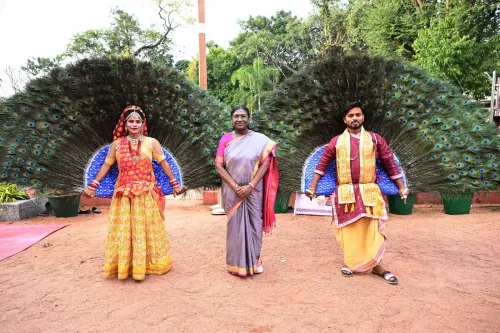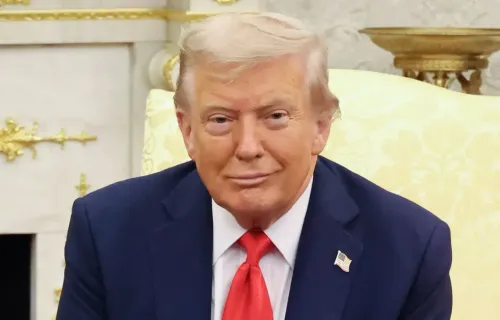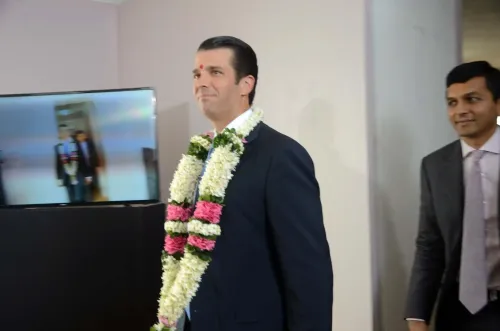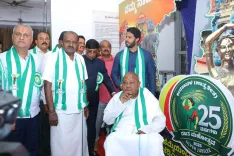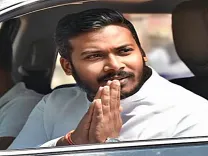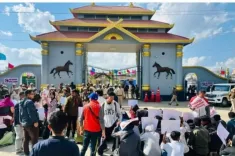Was the Emergency an Earthquake That Destroyed Democracy?
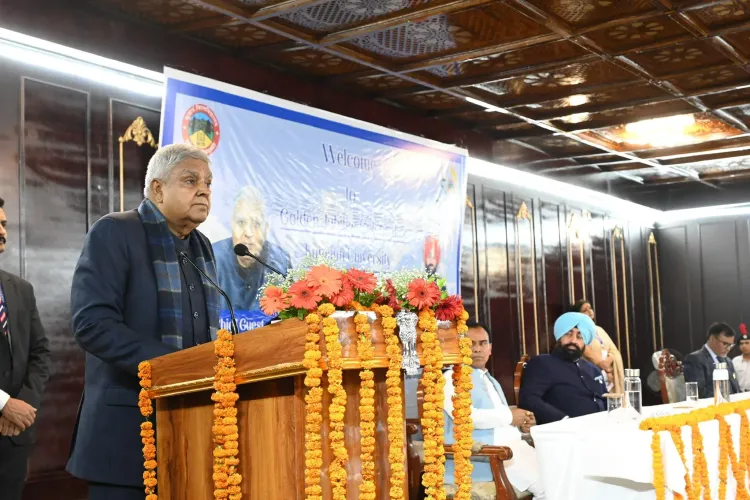
Synopsis
Key Takeaways
- The Emergency was a significant attack on democracy.
- 1.40 lakh individuals were imprisoned during this period.
- Judicial intervention was crucial in upholding Fundamental Rights.
- Youth must understand this dark chapter of history.
- Academic institutions play a vital role in fostering change.
New Delhi, June 25 (NationPress) Vice President Jagdeep Dhankhar on Wednesday criticized the 1975 Emergency imposed by the Indira Gandhi administration, describing it as a blatant attack on democracy and comparing it to an earthquake aimed at dismantling democratic values. He emphasized that the Emergency resulted in a chaotic phase for Indian democracy, lasting 21 months during which every institution was undermined and civil liberties were stripped away, marking a profoundly dark chapter in the nation’s history.
Dhankhar delivered this poignant message at the Golden Jubilee celebrations of Kumaon University, located in Uttarakhand’s Nainital district.
Addressing the audience of students and faculty members as the chief guest, V-P Dhankhar remarked, “Fifty years ago today, the world’s oldest and largest democracy faced significant turbulence, akin to an earthquake aimed at decimating our democratic fabric. This period saw the imposition of the Emergency. During this dark night, the Cabinet was marginalized. The then Prime Minister, under pressure from a negative High Court ruling, prioritized personal interests over national welfare. The President at the time disregarded constitutional values and sanctioned the Emergency declaration.”
He further informed the gathering that approximately 1.40 lakh individuals were imprisoned during this tumultuous time, their fundamental rights revoked.
“Fortunately, nine High Courts stood firm, asserting that Fundamental Rights could not be suspended, regardless of the Emergency. Every citizen has rights that must be upheld through judicial intervention. Regrettably, the Supreme Court, the apex judicial body, lost its way, overturning the decisions made by these nine High Courts and asserting that the Emergency declaration was an Executive decision, beyond judicial scrutiny,” the Vice President noted.
Dhankhar stressed the importance of educating the youth about this historically critical period, highlighting its significance for future governance and democracy.
“You are essential stakeholders in governance and democracy. Therefore, it's imperative to remember and learn about this dark chapter in our history. The government has wisely designated this day as 'Samvidhan Hatya Divas,' emphasizing its importance for the younger generation,” he said.
Moreover, the Vice President stated, “Academic institutions serve a purpose beyond merely providing degrees. They are spaces for fostering change and shaping the future. Education should not merely be about credentials but about cultivating a mindset that drives innovation and progress. Our demographic youth holds the potential to define not only their futures but the destiny of Bharat.”
In emphasizing the role of universities in learning, Dhankhar asserted, “These institutions are natural incubators for ideas and innovations. If fear of failure stifles creativity, progress will stagnate. Universities are where the world envies our young demographic, offering them opportunities not just for career advancement but to shape the future of our nation.”


